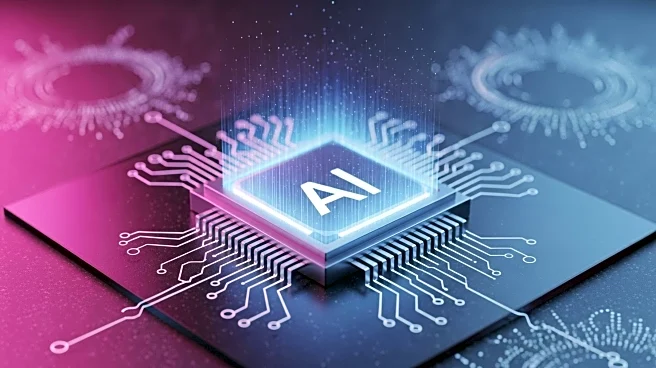What's Happening?
Anthropic has launched Claude Sonnet 4.5, its most advanced AI model to date, designed to excel in coding and complex task management. The model includes new features such as checkpoints, code execution, and file creation, enhancing its utility for developers. Claude Sonnet 4.5 is integrated with tools like GitHub Copilot and offers a Claude Agent SDK for building custom AI agents. The model is also equipped with advanced safety measures to mitigate risks like sycophancy and prompt injection attacks. It is available at the same pricing as its predecessor, Claude Sonnet 4.
Why It's Important?
Claude Sonnet 4.5 represents a significant advancement in AI technology, particularly in its ability to autonomously manage complex tasks over extended periods. This capability could revolutionize industries reliant on software development by increasing efficiency and reducing the need for human oversight. The model's integration with popular development tools suggests a broad potential for adoption, which could drive further innovation and productivity in the tech sector. Additionally, the emphasis on safety and alignment addresses critical ethical concerns, positioning Claude Sonnet 4.5 as a responsible choice for businesses.
What's Next?
As Claude Sonnet 4.5 gains traction, it is likely to face competition from other AI models like OpenAI's GPT-5 and Google's Gemini. The ongoing AI race will likely spur further advancements and improvements in AI capabilities. Businesses and developers may increasingly rely on AI models for complex coding tasks, potentially reshaping the software development landscape. Additionally, Anthropic's focus on safety and alignment suggests a continued commitment to addressing ethical concerns, which could influence future AI development and deployment strategies.
Beyond the Headlines
The introduction of Claude Sonnet 4.5 also raises questions about the future role of AI in the workforce. As AI models become more capable of performing complex tasks, there may be implications for job displacement and the need for new skill sets among workers. Furthermore, the model's enhanced safety features highlight the importance of addressing ethical and security concerns in AI development, particularly as these technologies become more integrated into critical business operations.











